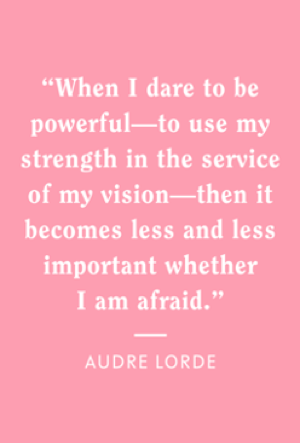We are Dr. Tracy Hilliard, a Senior Consultant at MPHI and Dr. Michael Arnold, a Director at Informing Change.
As African American evaluators, we are keenly aware of the historical uses of evaluation as a means of control, oppression, and exclusion. But in our culturally responsive and equitable evaluation (CREE) practice, we walk a fine line of encouraging more trust and engagement in evaluation among communities of color, while simultaneously trying to shift the balance of power in the field of evaluation and evaluation funding.
We write this piece to share reflections on strategies that have helped us move forward while still addressing the challenges we have faced due to racist practices, racial bias, and microaggressions along our academic and career paths.

Action for Racial Equity. Specifically addressing racism is an important first step in confronting racial inequities and intersections with other dimensions that hamper access to opportunities so that individuals, families, and communities can thrive. Racial equity, inclusion, and diversity cannot be talked into being. Action is key. And keeping others focused on action is essential.
Voice your values. Inner values are drivers of action for racial equity. For us, these have been shaped in part by a lifetime of facing racist and other discriminatory experiences. We have often been in situations where we have needed to remain silent about racism and discrimination in our experiences as African American evaluators in order to preserve our personal and professional reputations. We have learned how finding venues and platforms to voice these values in our CREE work is a key to advancing the field and equitable outcomes.
Care for your strength. The personal and professional challenges we face in taking action for racial equity and voicing values can be draining. Thus, we emphasize the importance of practicing self-care. As Audre Lorde writes, “Caring for myself is…self-preservation, and that is an act of political warfare.”
Hot Tips: What Can Everyone Do?
Everyone can help by reflecting and correcting for how you perpetuate systems and practices of institutionalized racism and other forms of oppression as evaluators and actors in society.
Everyone can help by valuing different ways of knowing and being.
Everyone can help by knowing that we are all in this struggle together. No one has arrived and we all have room to learn and grow about how to undo how we have been socialized through racist, white-dominant, anti-black systems and institutions at home, in school, at work, in community, and beyond.
To do CREE we must commit ourselves to always place the people who are most impacted at the center of conversations which seek to find solutions to problems affecting them.
Rad Resources:
- Center for Culturally Responsive Evaluation and Assessment (CREA)
- Leaders for Equitable Evaluation and Diversity (LEEAD)
- Advancing Culturally-responsive and Equitable (ACE) Evaluation Network
This week, we’re diving into issues of Culturally Responsive and Equitable Evaluation (CREE) with contributions from members of the Expanding the Bench Initiative (ETB). ETB is an initiative based on the fundamental belief that increasing diversity in the field of evaluation improves our knowledge base and makes for better science and social innovation. Do you have questions, concerns, kudos, or content to extend this aea365 contribution? Please add them in the comments section for this post on the aea365 webpage so that we may enrich our community of practice. Would you like to submit an aea365 Tip? Please send a note of interest to aea365@eval.org. aea365 is sponsored by the American Evaluation Association and provides a Tip-a-Day by and for evaluators.
Tracy and LEEAD alum, LaShaune Johnson, will be leading workshop on Utilizing a Racial Equity lens for CREE — if the AEA Summer Institute options are live at the time of posting, would like to link to this. [KM1]
